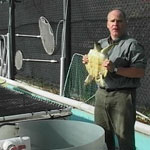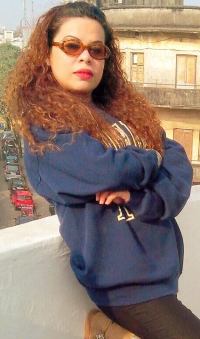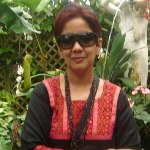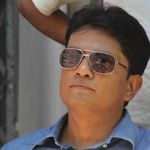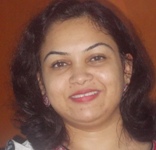Koyamparambath Satchidanandan, the colossal figure in Indian poetry, a Malayalam poet, critic who writes both in Malayalam and English is also a translator, editor and playwright, who was nominated last year for the most prestigious Nobel Prize , and for which his name earned so much fame all over the world is beyond imagination. As a major modern Indian poet he has already attained international fame.
I knew him only a few years ago first as an editor, then as a poet. Eminent Assamese poet Nabakanta Baruah told me about him. At that time I was editing the novels of Nabakanta Barua. Nabakanta Baruah also told me how Satchidanandan edited one of his lectures and transformed it to a wonderful piece of writing while he was the editor of Indian Literature. In the Prelude of Sachidanandan’s recently published anthology of poems he appreciates Nabakanta Baruah and Nilamani Phukan, two well known Assamese poets as great poets of India.
Of late, Satchidanandan visited Assam to attend the Literary Festival organized by Asom Prakashan Parishad. It was an opportunity for me to talk closely with my favourite poet. Satchidanandan simply remarked on Nabakanta Baruah,” I have been a great fan of his poetry since a number of years ago. I read his poems in English translation, ‘Indian Poetry Today’, published by Indian Council for Cultural Relation. I remember that my sojourn to Assamese poetry began with reading Nabakanta Barua’s poems.”
His friend and guide Ayappa Panikkar was an intimate friend of Navakanta Barua. He sometimes heard him highly appreciating the poet and his poems. One day he met Nabakanta Barua in a programme of recitation held in Bharat Bhavan, Bhoopal. He met him for the first time and it may be called love at first sight. Really, that extremely polite poet was a man of wonderful personality. The bond of love never came to an end. I became too much attached to him. While I came to Guwahati , many times I visited his house; I met him in different places; we read poems together and enriched myself with his warm and earnest love for me. He loved me very much and I too have profound respect for him.”
The same incident happens with me. At first poem and secondly, Sachidanandan’s multifaceted personality attracted me much. It was in Haflong, a hilly town of Dima Hasao district of Assam. That day power supply stopped as usual. The damp twilight entered carving through the window illuminating the dark library and I drew the books one after another from the unkept shelves. I turned over the pages in that crescent light. Just at that moment my eyes fixed on a poem “Stammer”, one who stammers:
Stammer is no handicap
It is a mode of speech.
A poem of just a few lines and it was enough to bewitch me. I was too much enchanted by the lines.
Gradually, twilight became more thin and frail. It was hard to read the poems in that feeble light. I silently went out of the library taking two or three books along with that particular book. Calm and quite was that hilly town, Haflong; pregnant clouds gathered thickly in the evening sky. Then it began to rain incessantly. I ran to a restaurant with rain drops on my head. The restaurant was on the bank of Haflong lake. I saw the outside world sitting on a chair of the restaurant ; rain drops drew some circles on lake water as if the lake and the surrounding hills made a giant bowl and the lake is the bottom of that big bowl. Suddenly rain came heavily. The sound of rain and the light coming from the headlight of the cars passing silently or with mild sound through the nearby road dazzles the lake water. I was away from the familiar world; instead such an atmosphere is beyond imagination in a busy city like Guwahati. Even for those who are residing in Haflong this scene is unfamiliar. This less-trodden and lesser known place, a marvelous view of Nature, and quite new world of Satcidanandan’s poetry was opened before the eye of an unaquainted poet; for a film this is a visually interesting image. Outside world was full of diverse words as well as silent articulation of number of images. In the frail glimmering candle light I hovered over the table of that restaurant and began to read:
The mad have no caste
No religion, They transcend
Gender, they live outside
Ideologies. We do not deserve
Their innonence.
After that I discovered an extremely different world behind the simple but condensed words. Standing on the soil of this earth, K. Satchidanandan quests for a sky stretching his arms to the infinite space. The scholars of art and human psychology emphasize on proper time, situation and the world created by that environment and say that appreciation of art depends on the correlation established by the appreciator. Sitting on the dark evening on the bank of the lake I probe into the heart of the poem looking at the frail far away light I felt deeply the unperceivable relationship between men and Nature, eternal human passion for light, for wisdom and knowledge. I gradually sank in the poetic world and felt that the poems raised me from the familiar middle station of life to a transcendental world casting me under a vast sky where we are alone, detached and alienated. We can feel again that all human beings are part of a universe where we are not alone at all.
After that my search for Satchidanadan began in the internet world. I got lots of information. My Malayalam friend, who is a poet and a film-maker also gave me lots of data regarding his poems. I have gone through several comments and criticisms on his poetry on different websites. I sent a friend request to him in Face Book, immediately he accepted. I discovered another Satchidanandan who is absorbing deeply in the beautiful world of literature, music and cinema.
Once I took a snap of Umium lake of Shillong and posted it on Facebook. I too gave a caption “On the Way to Shillong”, the title of one of his poems. After two days he posted the poem under the photograph.
On the way to Shilling
On the sepia banks of lake Umiam
Under a jacaranda tree in bloom
I saw her Banalata Sen
Satchidanandan edited an anthology of poem, Forth Space, first Malayalam anthology of poems published in blogs of internet. On Face book he declared, “I have gone through seven hundred blogs, average fifteen poems in one blog; that means minimum ten thousand five hundred poems and from these fifteen poets only thirty poems was selected.
Why it is called Forth Space?
“I edited one anthology of Malayalam poems named Third Space-‘Munavidam’. The phrase was first used by the famous Post-colonial critic Homi Bhaba to denote the diaspora. These diaspora people are living in a place leaving their own culture and society; they are always in a diasporic situation who cannot identify themselves with the culture of either. Homi Bhaba said that they are living in a third space. While I was reflecting upon the title, I thought except this there may be another space also, a virtual space, and I gave the name ‘Forth Space’, Munavidam.
Satchidanandan is called the ‘Voice of the Mutes’, he depicts physical disability with extreme sympathy and kindness; he gives an extra-ordinary language to their mouth; analyses the life of an insane with profound emotion and subtle understanding.
In ‘Cactus’ he not only portrays the picture of a cactus grown in a desert, but Cactus itself becomes a symbol implying the life of the oppressed, the exploited. He gives vent to the history of age-old oppression. Satchidanandan has discovered the dormant strength of these marginalized people who have been living under the pressure of perpetual darkness and exploitation. Sometimes Cactus becomes a beloved, deceived by her insensitive lover, sometimes a depressed poet betrayed by jealous friends; Cactus may denote any person deceived by the human world who has lost all his aspirations and dreams of life.
His most popular poems such as ‘Stammer’, ‘Grandma’, ‘The Mad’ are the articulation of silent self; at the same time it is also a quest for a parallel language to voice of their hidden suffering, unarticulated voice; he is , indeed, questing for a parallel life for the sufferers.
His words are familiar, simple, lucid words, but meanings are novel; connotation of all these words and the melodies too are unheard earlier. The foundation of this parallel life is the soil of this earth but its structure is built high above the earth.
Sitting on the bank of a lake in a hilly town, looking at the sky to discover the mystery of twilight is as inexplicable as the experience of this parallel world created by a great poet who is praised by the critics as an after-modernist poet for his extra-ordinary themes and unique craftsmanship.
There is a poem on insanity. One day to his utter astonishment he discovered that his grandmother was insane. (My grandmother was mad; the name of the poem is Grandma). But his search for the mystery behind madness has given him the touch of transcendental life.
He has built a house of his own. Own house? What is his own house? What are the things inside this house? Faith and hopes, only faith and hopes are there inside the house. He gives a new definition of life, love, insanity and stammering etc.
In this transitional age, no art is perfect in itself; each medium accepts something from other and giving some elements to them. This exchange of elements or ‘give and take’ strategy makes each and every art form enriched with diverse dimensions. In his poems the concluding lines contain the wonderful suspense of Chekovian short-stories. The last line of ‘Loving a woman’ (I have never loved a woman) is just in Chekovian style of ending a short-story. Brownings dramatic monologue is also echoed within the verses:
Music peeps through his poems, often as a part of the theme, often as style. For example, more or less all the opening stanzas of his poems resemble the very slow ‘bilambita laya’ of Indian Classical music:
Like the dog marking
Its passage with piss
I mark my passage
With the words that smell life :
That’s all
Middle is just like ‘bistar’ (extension of swars), the concluding stanza resembles again a
‘tarana’, the quick flaw of melody:
I am no Yamati
I gather my mustard from
Houses where people die.
The strong cinematic visual images, style of screenplay writing and different elements arranged in multi-dimentional way to bring forth the narrow confinement is also very prominent in his poetic world. Films too bring experience of ecstatic joy and excitement to him. Remembering the film of Alan Resnais’s ‘ HIroshima Mon Amur’ he composed ‘Man Amour” where one can feel the narrative of a film transformed into the narrative of a poem: “I raise you to the rainbows, you climax in a rain of bombs.” The picturization of different incidents, phenomena and contemporary world, the pleasure of portraying all these incidents and phenomena are worked with poetic sensibility and innovation. The poet feels the grandeur of life over death and protests boldly against the nuclear power- mongering of different countries including India. In a poem ‘To be prepared for Death’ he criticizes the nuclear test experimented by India in Pukhran.
Standing on the soil of India, he looks into the world. He has become the voice of the subaltern by articulating very succinctly the unarticulated agony, fear and suffering of mute mass. Moreover, his eyes fixed on the vast sky that accumulates all the colours of the earth, cloud and wind , love, life and humanity.
(Translated from original Assamese by Gitali saikia).













